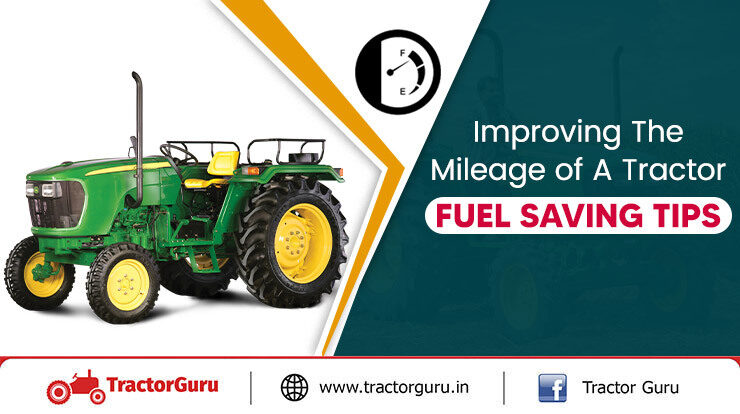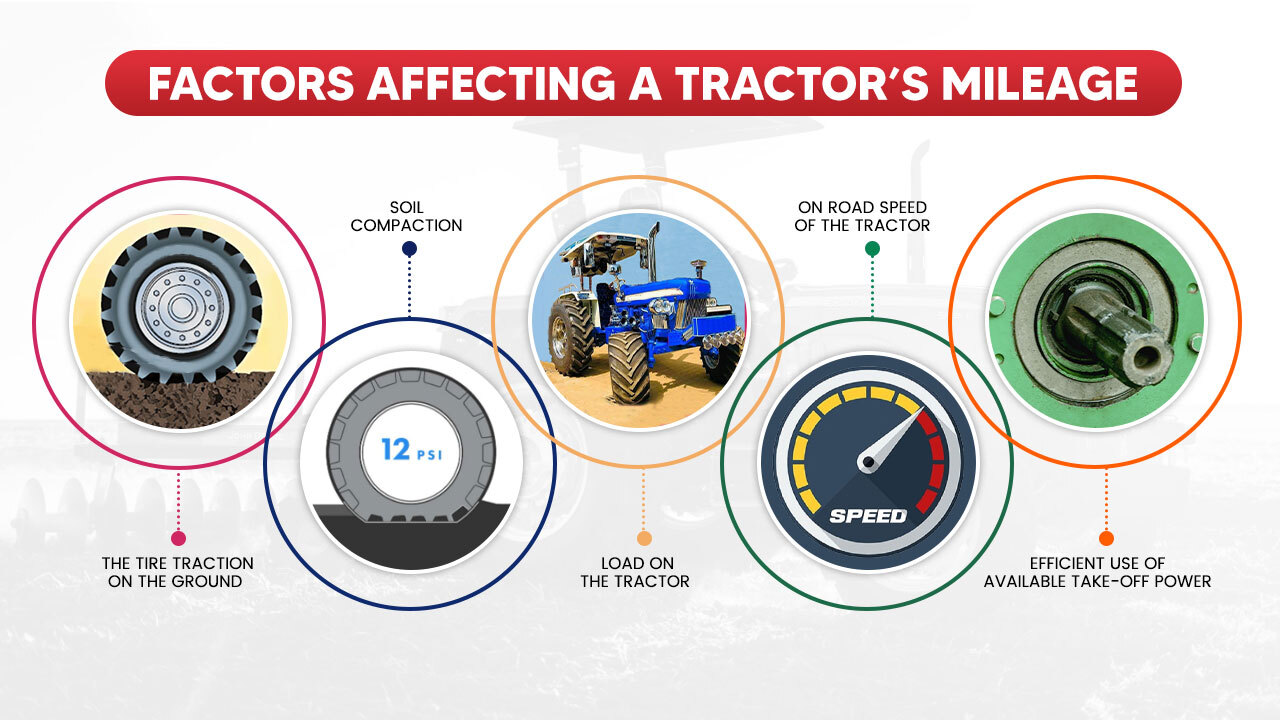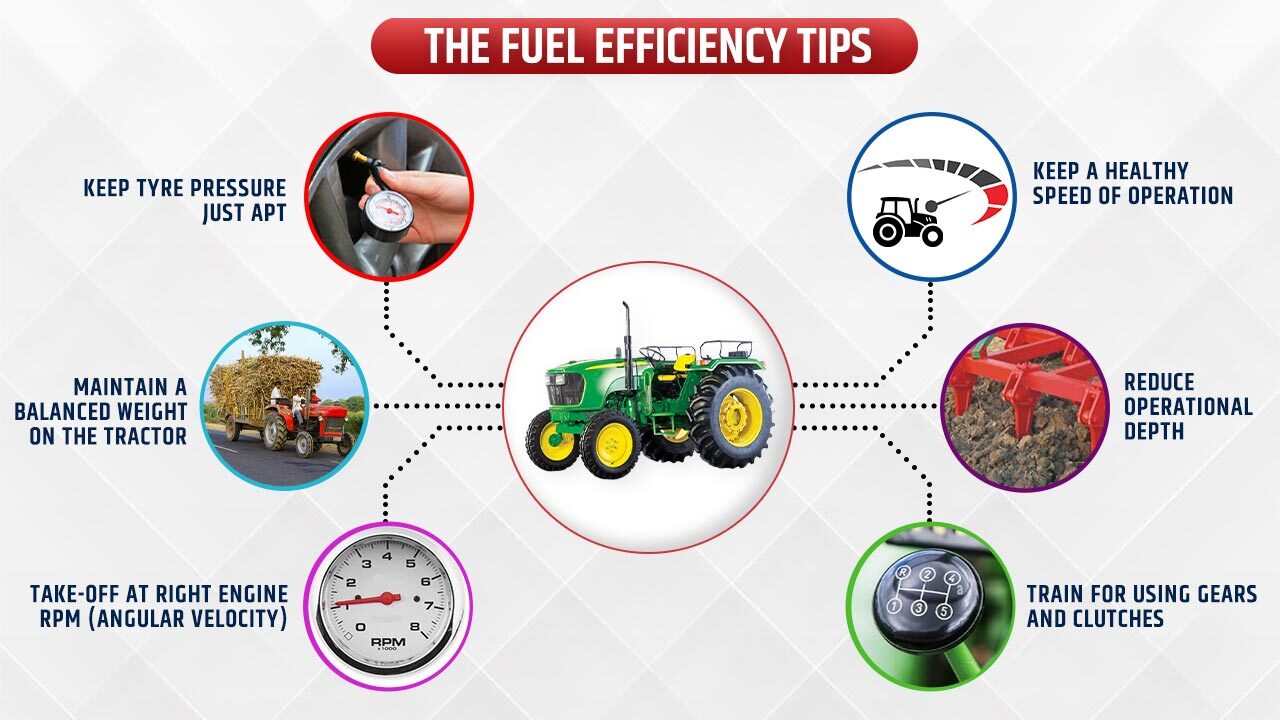How to Improve Tractor Mileage?: Know the Fuel Saving Tips

Are you a farmer? If yes, then this is the right blog you should be reading right now, As it discusses the fuel efficiency tips by technically judging a tractor. Every farmer in any corner of the world dreams of a tractor with high mileage along with high performance. However, the tractor manufacturing industry is constantly improving its ways to improve the mileage of a tractor. The most positive results are yet to come.
In this blog, we will discuss ways of improving the mileage of a tractor by lowering fuel consumption per hour. And, henceforth, understand the importance of tractor mileage.
What is Tractor Mileage, and What is its Importance?
Tractor mileage is the amount of fuel consumption per mile distance covered on the ground. It is important as it represents the overall performance of the tractor in farming and non-farming operations. Talking beyond it, the tractor is a modern source of mechanized equipment for farmers across the corners of the world. And eventually, everyone on the planet needs food as it is the basic amenity of life. And that too at cheaper costs. Henceforth, we need cheaper fuel for machines to produce food at cheaper costs.
Let us understand these below-given points before moving forward. These factors decide a tractor’s mileage to a large extent.

- The tire traction on the ground
The tire traction on the ground decides the peer pressure on the wheel of the tractor and its wear and tear. More the traction of the farming machine, the larger its footprint on the soil, and hence more its mileage while keeping a constant speed.
- Soil compaction
The more the pressure in the tyres of the tractor, the more its compaction on the soil. And hence more bulldozing is needed to overcome the compaction in the soil. This decreases the tractor mileage.
- Load on the tractor
The ballast weight on the tractor should be balanced with respect to the weight of the tractor. Furthermore, the tractor should carry a balanced weight of the tractor.
- On road speed of the tractor
The more on-road speed of the tractor, the lesser the mileage of the tractor.
- Efficient use of available take-off power
The efficient use of take-off power available on the tractor decides the tractor mileage more broadly. More importantly, the tractor’s take-off power is put to use by the tools such as hydraulics, levers, splines, etc.
Henceforth, after the discussion of the above five factors that contribute to tractor mileage, we should move forward with the tips to improve it.
Step to Increase Fuel Efficiency Tips in Tractor

Although companies are manufacturing and promising tractors of higher mileage on a yearly basis. The driver’s operation of the machine matters the most. Sometimes, mileage can be increased just by hiring an efficient driver who can perform (or even be cautious enough to perform) the below-given tips.
-
Keep tyre pressure just apt
As discussed in the earlier section, tire pressure is a major contributor to tractor mileage. More inflated tyres will cause more bulldozing of the soil it touches and hence more tractive force to the ground. Henceforth the peer pressure on the ground decreases, causing the tires to slip. Thus, these slippy tyres consume more power and hence more tractor fuel.
The point to remember is that keep adjusting the tyre’s pressure till it’s just apt for the farming machine. The ideal pressure for the wheels of a tractor is approximately 12 PSI.
-
Maintain a balanced weight on the tractor
A balanced weight on the tractor not only reduces the overall tension on the chassis but also makes the fuel consumption the least for the tractor. A weight will be more efficiently balanced on the tractor if it has got its position on or near the centre of gravity. A balanced tractor performs better with respect to an unbalanced tractor due to equal energy distribution at both the rear and front wheels.
Here, the point to remember is that if the tractor has unbalanced weight distribution between its wheels, it consumes more fuel. Therefore, in order to improve the mileage of a tractor, we need to balance the weight of the tractor.
-
Take-off at right engine RPM (angular velocity)
It means take-off when your engine is ready. It is commonly seen that drivers rush to take off as soon as a diesel engine starts. But, this process of taking off is harmful to your engine as well as consumes more tractor fuel. This, in turn, hurts tractor mileage in both the long and short term.
The solution to this problem is to take off at the right angular speed of the engine, as shown on the instrument cluster or mentioned in the user’s manual.
-
Train for using gears and clutches
Gears and clutches are made to define the speed of a moving vehicle. When it comes to the tractor, clutches and gears decide both the speed and take-off power distribution generated through the engine. Gear transmission at just the right speed makes consumes less tractor fuel. And hence improves tractor mileage.
Therefore, here the point to consider is to train your driver or yourself (in case you are the driver) for agreeable use of gears and clutches. This should be done as per the user’s manual to increase tractor mileage.
-
Reduce operational depth
The operational depth here means reducing the depth of operation of implements attached to the tractor. Excessive depth of operation causes extra soil compaction. Researchers have concluded that bouncing back to normal operational depths does NOT reduce crop yields. Furthermore, testing says that reducing the depth by 8 cm saves 26% more fuel. Therefore now you know how to increase tractor mileage just by reducing operational depth.
-
Keep a healthy speed of operation
As we all know, tractors are mainly farmland pieces of machinery. And using it for non-farming use such as travelling, carrying unplanned goods for long distances, etc. So while performing non-farming or farming operations, it is advised to keep the tractor’s speed as low as possible to keep up with tractor mileage.
The point to focus on here is the healthy speed of operation of the tractor improves tractor mileage to a major extent.
How a Tractor Performance is Related to Tractor Fuel Efficiency?
Tractor fuel efficiency defines a tractor’s performance in many ways. A tractor with good mileage is called a fuel-efficient tractor. Further speaking of a tractor’s performance, a tractor depends upon many constraints for making it a performance focussed tractor, and one of them is its fuel efficiency.
The above-discussed subheadings have clearly shown that tractor performance is directly proportional to a tractor’s fuel efficiency.
Final Thoughts
In this chapter on improving tractor mileage, we studied that there are a total of five factors that affect tractor mileage and a total of six steps that improve tractor mileage. We hope that these factors and tips guide you and your tractor to better mileage and performance.
Related Blogs



